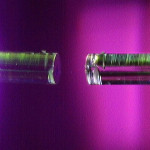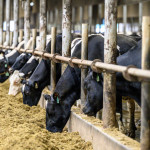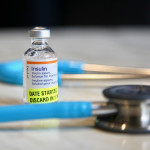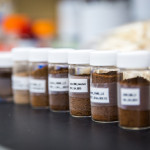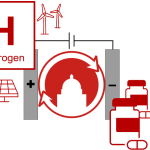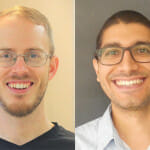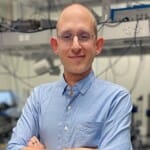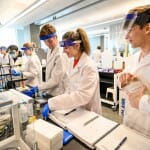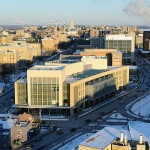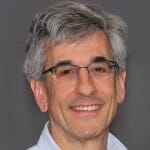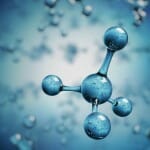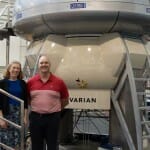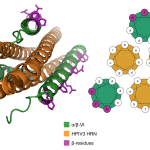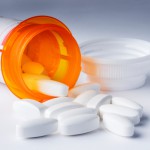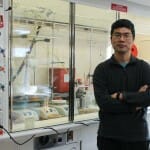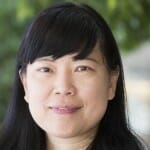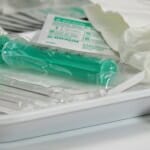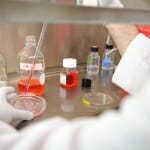Tag Chemistry
UW–Madison scientists develop most sensitive way to observe single molecules
The new method could have implications for pursuits as varied as drug discovery and the development of advanced materials.
Zapping manure with special electrode promises an efficient method to produce fertilizers, other chemicals
The researchers' preliminary analyses show it could offer considerable benefits by cutting water and air pollution while simultaneously creating products that farmers could use or sell.
UW–Madison project combines art, policy and science to create plant-based plastics and benefit marginalized communities
A team led by University of Wisconsin–Madison scholars has a plan to turn paper mill waste into plant-based plastics, slashing greenhouse gas emissions and other pollution and creating economic opportunities in ways that benefit marginalized communities.
New approach shows hydrogen can be combined with electricity to make pharmaceutical drugs
Developing a hydrogen-based way to make pharmaceuticals aligns with renewed interest in a "hydrogen economy."
Two UW–Madison faculty among 2023 Sloan Research Fellows
Being honored are Andrew Buller, assistant professor of chemistry, and Jose Israel Rodriguez, assistant professor of mathematics.
Chemist Randall Goldsmith named a Schmidt Science Polymath
The UW–Madison professor's multidisciplinary approach to studying chemical and biophysical systems earned a $2.5 million award from the philanthropic organization founded by the former CEO of Google.
Chemical reaction: ‘a huge upgrade’
The recently opened addition to the Chemistry Building on University Avenue is a nine-story tower housing lecture halls, an information commons, offices, teaching laboratories, and group write-up spaces for undergraduate teaching labs.
Flexibility may be the key to potent peptides for treating diabetes
New research suggests that the peptides — short chunks of protein — used to treat Type 2 diabetes may be more effective if they’re able to flexibly move back and forth between different shapes.
Ocean life helps produce clouds, but existing clouds keep new ones at bay
New research findings from the UW, NOAA and others may change the way scientists predict how cloud formation responds to changes in the oceans.
Campus sustainability initiatives have their day in the sun
On August 12, leaders from the Wisconsin Departments of Administration (DOA), Financial Institutions (DFI), and Safety & Professional Services (DSPS) toured several campus facilities to learn more about the ways UW strives to create solutions that address some of today’s biggest sustainability challenges.
NSF award to establish network for advanced NMR across three institutions
UW–Madison will join a first-of-its-kind collaborative network for nuclear magnetic resonance spectroscopy, which researchers use to probe large biological molecules like proteins and RNA.
Scientists develop better way to block viruses that cause childhood respiratory infections
While the approach hasn’t yet been tested in humans and researchers must further refine and test the system, it does provide a new strategy for potentially preventing or treating these common infections.
New method targets disease-causing proteins for destruction
The technology, developed by UW–Madison Professor Weiping Tang and colleagues in the School of Pharmacy, could produce entirely new kinds of drugs.
Measuring the pancreas’s protein landscape assists diabetes and cancer research
New research aims to measure the pancreas’s entire suite of proteins. Ultimately, that data will advance research on pancreatic diseases like pancreatitis, pancreatic cancer, or diabetes.
COVID questions: Influenza comparison, selling home precautions
What's the difference between COVID-19 and influenza? What precautions should I take after potential buyers tour my home?

